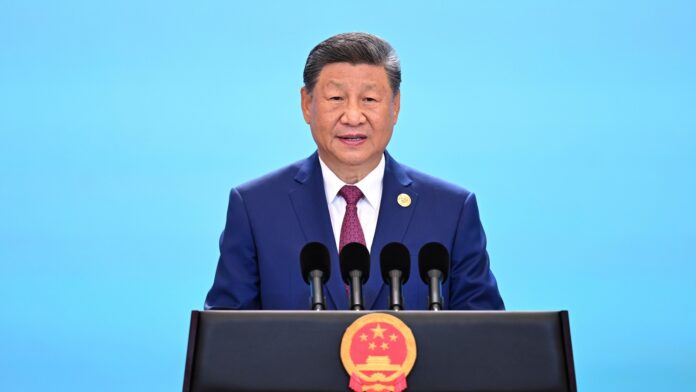China “absolutely will not” rule out using force over Taiwan, a government spokesperson said on Wednesday, striking a much tougher tone than a series of articles in state media this week that pledged benign rule if the island comes over to Beijing.
China, which views democratically governed Taiwan as its own territory, has never renounced use of force to “reunify” with the island.
But the policy is not often directly voiced in public and did not appear in three Xinhua news agency commentaries this week about Taiwan, one of which mapped out how “patriots” could rule the island after “reunification” and promised Taiwan’s existing social system and way of life would be respected.
Peng Qing’en, a spokesperson for China’s Taiwan Affairs Office, told a regular news conference in Beijing that peaceful “reunification” under the “one country, two systems” model is the fundamental approach to “resolving the Taiwan issue”.
“We are willing to create ample space for peaceful reunification and will spare no effort to pursue this prospect with the utmost sincerity,” he said.
“However, we absolutely will not renounce the use of force and reserve the option to take all necessary measures.”
China’s top official in charge of Taiwan policy, the ruling Communist Party’s fourth ranked leader Wang Huning, did not mention force in a key policy speech on Saturday, that instead focused on how both sides would benefit from “reunification”.
China’s renewed push on an autonomy model for Taiwan, which no major Taiwanese political party supports and the government in Taipei has repeatedly denounced, comes ahead of a meeting in Thursday between U.S. President Donald Trump and Chinese President Xi Jinping.
Trump told reporters on Wednesday he did not know whether he would even discuss Taiwan with Xi.
Taiwan’s government rejects Beijing’s sovereignty claims.
Speaking earlier on Wednesday in Taipei, Taiwan National Security Bureau Director-General Tsai Ming-yen said China’s “patriots” model was what Beijing used in Hong Kong and Macau and had no market in Taiwan.
“The aim is to belittle Taiwan’s international standing, and Hong Kong-ify and Macau-ify Taiwan, to achieve the political objective of eliminating Taiwan’s sovereignty, which the Chinese Communist Party seeks to do,” he said.
“I think the Chinese communists have no way to enact the application of the Macau or Hong Kong model in Taiwan.”
In 2021, Hong Kong, which returned to Chinese rule from Britain in 1997, held its first “patriots-only” election with candidates vetted as loyal to Beijing. Turnout hit a record low.
Taiwan held its first direct presidential election in 1996 and democracy on the island is a noisy and vibrant affair where candidates are free to espouse any point of view, including being pro-independence or pro-Beijing.
China’s government refuses to talk to Taiwan President Lai Ching-te, saying he is a “separatist”.
china taiwan dispute,china taiwan unification dispute,china taiwan,beijing,chinese president xi jinping,china territorial dispute taiwan
#China #absolutely #rule #force #Taiwan

